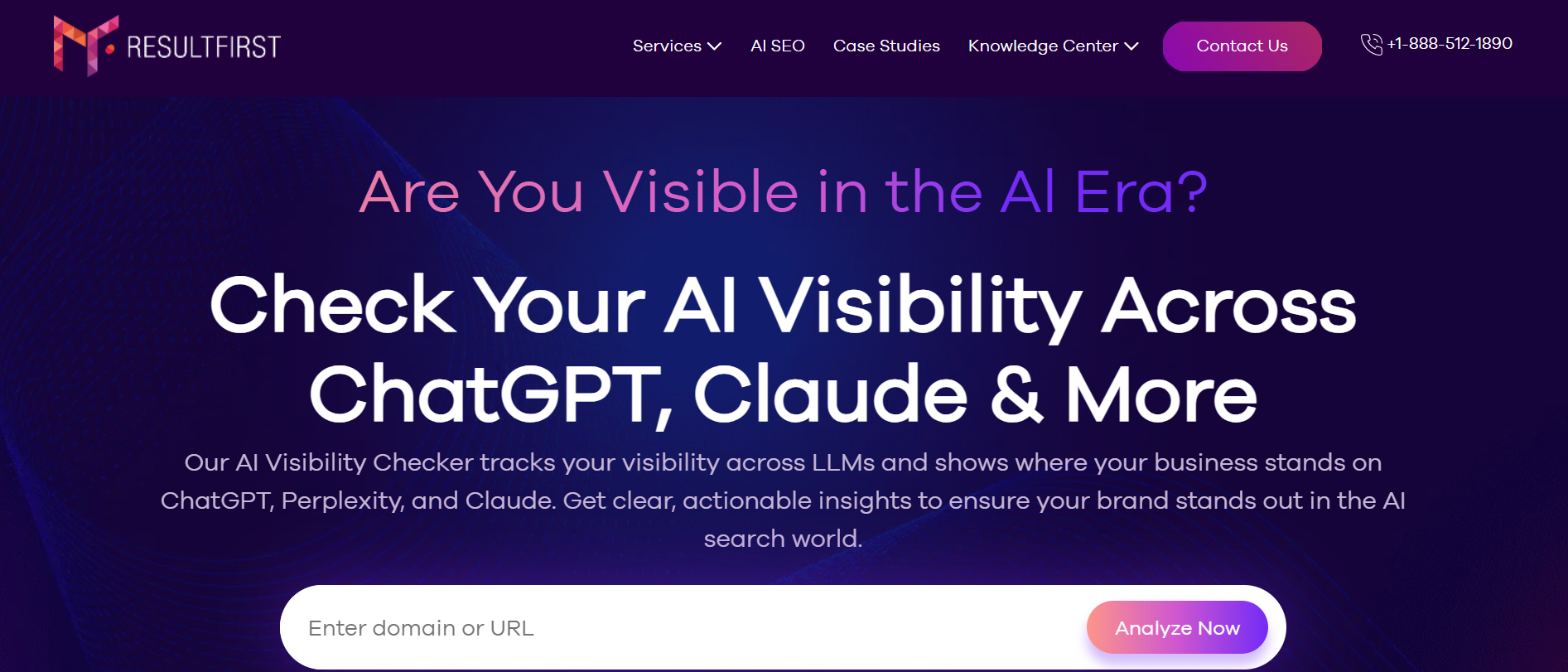As AI-powered search results, such as AI Overviews, Google SGE, and Bing/GPT-style chat, become a primary way to search, ranking in organic search results is not enough. These AI features summarize the web results for users and display the information direction on the SERP without clicking the individual pages. According to a report, almost 13.14% of all search queries triggered AI Overviews in March 2025, up from 6.49% in January 2025. This change in search behavior highlights the share of AI search queries with large drops in Click-through rates to publisher sites.
So, if your brand appears in these AI answers, users can interact with you even without clicking, and if you just focus on the organic results, you are already losing your target audience. That is why marketers need to focus on securing AI brand mentions, moving beyond traditional SEO tactics to create a strategy with structured data from authoritative sources that AI uses to build its answers.
So, talk about some of the trending and practical strategies to gain AI brand mentions and get featured in AI search results, as well as what brand monitoring tools you can use to track success.
How Do AI Search Engines Choose Brands to Mention?
Getting AI brand mentions requires a proper understanding of how AI models decide which sources to use. AI systems like Google SGE and LLMs (ChatGPT, Perplexity AI Gemini, etc.) use various signals to determine the relevance of the content. Some of the key signals include:
- Source authority: Sources that are reputable publishers, governmental sites, scientific studies, and authorities in niches are most prioritized by AI Overviews.
- Structured data signals: Schema markup, metadata, and contextual clarity help AI parse your content.
- Consistency of mentions: The more your brand is mentioned across reputable sites, the more likely your brand will show up in answers from AI.
- Topical relevance: Content that is focused on the query, clearly expressed, and factually based is favored.
- Freshness of data: AI models favor updated and accurate information.
For a deeper look at how authority, structure, and consistent brand signals shape AI-generated results, listen to our podcast episode Authority Signals in AI-First SEO.
This means optimizing for AI mentions requires a good strategy, digital PR, content structuring, and keeping track using brand monitoring tools.
Note: Before applying any strategy, disable all the blockers that stop AI bots from crawling. It can impact mentions and citations of your brand.
Strategies To Get Your Brand Mentioned in AI-Answers
Here are some of the main strategies to attain a place in AI brand mentions, and focusing on building authority, structuring content, and maintaining freshness.
Strategy #1: Keep Your Content Updated and Well-Structured
AI gives utmost value to the content that is fresh, updated, and well-structured. Generally, content published within the last 90 days gets more visibility. This means you don’t need to create new content or blog posts every day; you can just update older pages with new data, authoritative links, and updated examples to keep them relevant.
Remember: freshness is not the only criterion; AI systems evaluate how easy and readable your content is to use in AI answers. That is why structure matters the most. To make AI-friendly content:
- Regularly update older content to reflect current trends, statistics, and industry developments.
- Pay more attention to the content hierarchy. Properly structure H2 and H3s for specific sections and topics. Shorter paragraphs make content more readable.
- Also, add structured elements such as FAQs, lists, tables, and step-by-step guides. This makes it easier for AI systems to pull information directly into their answers.
Strategy #2: Build Topical Authority With Expert/ Authoritative Content
AI systems prioritize content obtained from credible and authoritative sources. To make your brand a trusted reference, you need to:
- Mention comprehensive guides: Include topics with accurate information, clear explanations, and structured layouts that AI crawlers can easily parse.
- Properly talk about your source name: AI systems don’t always recognize hyperlinks. So instead of just dropping the link, mention the source name, and write the source name in the text. For example, you can write “According to a study by Hubspot” instead of just linking text.
- Provide distinctive research and data: Case studies, benchmarks, and proprietary studies provide original observations that AI systems value as references.
- Maintain clarity and structure: Utilize headings, bullet points, and bulleted text, which can increase readability.
- Use Expert Name: Mention the full name along with the title of the author so AI crawlers can easily recognize it.
Strategy #3: Don’t Just Focus on Keywords, Target Prompts
AI search is different from Google because it not only focuses on short keywords like Google, but it also prioritizes conversational keywords. If your content only targets the keywords, you are missing out on the real phrasing of the questions.
Here is how you can practice these prompts
- Google Search Console: Find long-tail keywords 10-12 words or more. It will give you an idea of how people actually type on AI search engines.
- Reddit and forums: Browse threads in your niche. The way users ask questions is almost the same as prompting AI tools.
- Quora and Q&A sites: Perfect for identifying natural phrasing and prompts focused on problems.
Strategy #4: Try to get your Brand mentioned in Authoritative Websites
Citing authoritative sites and experts in your content is one thing, but getting your name on authoritative websites is what makes your website AI-friendly. AI search engines don’t read your website; they evaluate your brand as an entity across the web. They keep track of how many times the AI brand mentions you, which sends a strong signal of authority.
Here is how you can build entity mentions:
- Try to get your website’s mentions in PR placements, interviews, or other trusted outlets to gain a strong reputation.
- Participate in rondups and reviews or comparison lists, which give AI engines proof that your brand is relevant and a continuous part of the conversation.
- Co-marketing or sponsored research also contributes to the overall authority of your brand.
Strategy #5: Build Authoritative Backlinks from Respected Websites
AI models focus more on trustworthiness and credibility, and backlinks from establishments with a solid reputation significantly boost your authority.
- Focus on high authority domains like government institutions (.gov), universities (.edu), and elite media publications abroad.
- Collaborate on research papers, industry reports, and guest articles.
- Watch competitors’ backlink profiles and content that cites them to identify topical gaps and opportunities.
Be consistent with the focus to generate high-quality backlinks to strengthen both AI visibility and overall domain trust.
Strategy #6: Target Both Engines, Google and Bing
Among AI citations, you will often see top-ranking articles, especially in AI Overviews, but it’s not only about ranking in Google. Models like ChatGPT extract all the data from Bing, which means you need to keep optimizing for both.
You can use Webmaster Tools along with Google Search Console to keep a regular track of your brand visibility.
Strategy #7: Target Niche and Long-Tail Keywords
AI systems rely on a number of sources to answer user queries. However, when it comes to a niche of highly specific topics, only a few trusted sources are available. It’s a great opportunity to establish your brand as a go-to source for credible content.
- Talk about your industry’s untouched topics with step-by-step information, case studies, insights, etc.
- Target long-tail keywords that focus on specific customer challenges, questions, or uses.
- Provide complete answers to questions your audience is likely to ask. Include FAQs, case studies, and real-world examples to create relevance.
Strategy #8: Focus on Multimedia and With AI-Friendly Metadata
AI-powered search isn’t just text-based. Many AI models like LLMs (ChatGPT, Gemini, Perplexity AI) provide images and videos in their answers.
- Include all text, captions, and schemas for all the multimedia assets.
- Host videos on social media platforms like YouTube with detailed transcriptions to improve indexing.
- Create podcasts and webinars with tagged metadata, including descriptions, titles, etc.
Google SGE prioritizes rich media with AI-friendly metadata to enhance visibility and increase the chances of being featured in AI-generated search results.
Strategy #9: Optimize for Structured Data and Schema Markup
AI systems better understand your content when it is labeled and structured properly. Here is what you can do:
- Make use of the schema.org markup for referring to different articles, FAQs, reviews, events, and products.
- For each product you sell, follow this markup to include its name, description, brand, SKU, price, availability, and aggregate rating. This structured information will assist AI in utilizing it in product comparisons and recommendation carousels.
- Mark up the name of every author profile and organization to boost brand authority.
Machine-readable content is more likely to be featured in AI-generated answers as it helps extract key details like: ratings, date, author, product specs etc.
Strategy #10: Use Brand Monitoring Tools To Track AI Mentions
AI search is becoming a new norm, so it’s not only about applying strategies, it’s about knowing how they work. This is where brand monitoring tools provide a broader view of your mentions, citations, and share of voices across different AI platforms.

- Track your AI visibility with ResultFirst’s AI Visibility Analysis.
- You can also track mentions through tools like Semrush, Buzzsumo, and more.
- Benchmark against the competitor’s website to know who AI mentions mostly.
Monitor regularly and adjust your strategies instantly according to the algorithmic shifts.
Conclusion
Getting AI brand mentions is as valuable as ranking top on Google. AI search is the present and future reality of how users now search for information online. With AI Overviews leaving a major impact on organic CTR, earning a place in AI brand mentions is just not an option; it is a necessity to stay ahead in this AI-driven search era. By focusing on structured, authoritative, and AI-friendly content, you can make your brand a part of the modern search ecosystem that AI prioritizes.
Want to improve your brand mentions and citations across search engines? Choose ResultFirst, your expert AI SEO agency that ensures your brand appears at the top of search results. We optimize your content with structured data, authoritative content, and AI-friendly formats to ensure brand mentions across multiple search platforms. Choose ResultFirst and make you the first choice in AI-generated answers.
FAQ’s
WHAT TO READ NEXT
READY TO BUILD PREDICTABLE ORGANIC GROWTH?
We are the only TOP SEO services agency providing Real Results in a Real Performance model. We help growth hungry companies outperform their competition and achieve 300%+ growth in their digital marketing initiatives.
- San Jose, CA, 95120
- +1-888-512-1890
- sales@resultfirst.com
















